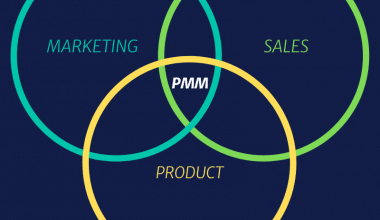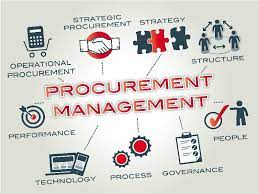Construction projects are highly structured activities. Whether creating a commercial mall or a single-family home, each project has many moving pieces that must be properly coordinated. Just like any other project, construction project management involves phases. Each step, from design to planning to schedule to building, is hard and a part of a bigger, more complicated process. That’s why there’s project management software. Is project management software, however, powerful and active enough to support a construction project? Before answering that question, it’s important to know what construction project management is, the salary they earn, and some examples of what they do.
What is a Construction Project?
A construction project is an organized attempt to develop a building or structure. In civil engineering and architecture, building projects involve putting infrastructure or buildings together.
A construction project is not a single activity; it consists of many mini-projects. Bigger-scale construction projects necessitate human multitasking; these construction projects are typically managed by a project manager and supervised by a construction manager. A design engineer, a construction engineer, or a qualified project architect is also in charge of these bigger building projects.
Who is a Part of the Construction Project?
A construction project is typically made up of many smaller projects that require the collaboration of many different disciplines. A typical construction project involves a large number of workers, with the structure and composition of the project team changing over time. Projects may be supervised by a project manager (or by a lead consultant) who is backed by experts such as an architect, engineer, cost consultant, and so on.
Types of Construction Projects
For many people in the construction industry, the type of construction project relates to the facility being built. They are simply:
- Residential buildings, such as single-family and multi-family dwellings.
- Commercial buildings like offices or warehouses.
- Industrial facilities, such as factories or large-scale manufacturing plants.
- Infrastructure projects, such as roads, bridges, airports, or wastewater systems.
This way of grouping projects gives you an idea of what the building is for and what techniques and tools may be needed for its development. While commercial and residential jobs are both frequent forms of private construction projects, there are some significant differences that contractors should be aware of.
These main types of construction represent the great majority of projects, and many organizations and contractors specialize in a certain industry.
Construction Project Management
The process of managing construction projects is referred to as construction project management. When compared to other types of projects, construction project management is mission-based. That is, the project’s organization concludes with the completion of the project’s construction.
While project management is commonly defined as managing resources throughout a project using various tools and processes to regulate scope, cost, time, quality, and so on—when working in the construction industry, your perspective must be broader. Construction management typically involves a broader range of restrictions that are unique to the design and building of construction projects.
Also, construction project management can interact with a variety of various disciplines in the lifetime of a project as well, from architecture to engineering to public works to city planning.
Construction Project Management Salary
Construction Project Management in the United States has an average annual salary of $82,896 as of February 27, 2023. In case you need a quick salary calculation, that comes out to about $39.85 per hour. This equates to $1,594 each week or $6,908 per month.
While ZipRecruiter reports yearly wages as high as $129,000 and as low as $35,500, the bulk of Construction Project Manager salaries in the United States now varies from $64,500 (25th percentile) to $97,500 (75th percentile), with top earners (90th percentile) earning $117,000 per year. The average salary range for a Construction Project Management ranges substantially (by as much as $33,000), indicating that there may be numerous prospects for promotion and increased pay dependent on skill level, location, and years of experience.
According to recent job posts on ZipRecruiter, the Construction Project Management job market in Atlanta, GA and the surrounding area is highly active. Your area’s average annual salary for a Construction Project Management is $82,065 per year, or $831 (1%) less than the national average annual salary of $82,896. Georgia ranks number 50 out of 50 states nationwide for Construction Project Management salary.
Construction Project Examples
These are some examples of lean construction technology that you can find useful for your construction project:
- Web-based project management software
- VDC (Virtual Design and Construction)
- BIM (Building Information Modeling)
- Worker enhancement, tools, and machines
- Automated scheduler
- Customizable accounting software
- Sensors and wearable devices
- 3D printers
Stages of Construction Project Management
#1. Initiation & Design
During the initiation phase of the project, conduct a high level of risk analysis. Recognizing important risks early in the project will help your team prepare for whatever may occur. Designing a construction project consists of four stages.
The Concept
What are the project’s requirements, aims, and objectives? You’ll make judgments based on the scale of the project, the construction location, and the actual design of your structure. This comprises of a list for each room or place under examination, including all critical facts.
The Schematic Design
This is a sketch that shows all of the different parts, materials, sizes, colors, textures, and so on. It includes the floor plan, elevations, and so on, as well as a site plan.
Design Development
This necessitates investigation. To reflect these decisions, you’ll be refining the original drawings from the previous stage. Knowing and adhering to local building codes will be critical at this stage.
Preconstruction & Planning
From here, it’s time to start allocating roles and plans to make the project successful. Establish teams, and make sure that the teams have the skills and certifications required to perform a task. If you have parts of a team who aren’t trained, be sure to have everyone trained.
#2. Procurement
You have people and you’ve planned for the construction and supplies necessary to accomplish it, now you must obtain those materials and equipment. Depending on the organization of the business executing the work, this may be the duty of the general contractor or subcontractors.
#3. Construction and execution
Finally, you’re ready to start building! But first, you have a preconstruction meeting to deal with labor hours, the storage of goods, quality control, and site access.
#4. Performance Control
Something will certainly change or go wrong during this period. Make sure your team communicates effectively and remains adaptable. Effective project managers can adapt to and solve difficulties. Prepare for the possibility that some things will not go as planned.
#5. Delivery and Closure
This concludes the project. Make a list of everything that is still unfinished and assign it to a team member.
Finally, the ultimate success of the project is determined by the owner’s happiness. The projects concludes when the construction is completed and the tenants move into or take control of the place. To make that arrangement formal and enforceable, you must ensure that all of their needs have been completed, and you must usually provide a guarantee period.
Construction Project Management Software
Construction project management software coordinates the planning, scheduling, building, resources, and reporting connected with construction projects. It simplifies the process and boosts production while adhering to a strict timetable and budget.
Construction management software is intended to assist managers in controlling all phases of their projects by unifying different sections and automating routines to increase efficiencies. Construction projects management tool also keeps stakeholders updated by sharing data-rich reports.
Owing to the large number of documents associated with every construction project, file management, and storage are also important components of construction project management software. Real-time data is also required to foster collaboration, plan, schedule, and manage resources. Microsoft Project is one of the most commonly used project management software, but it has major drawbacks that make ProjectManager a better alternative.
Best Construction Project Management Software
There are project management apps for large general contractors as well as smaller subcontractors. There are also programs specialized for certain businesses, such as residential or commercial construction companies. We’ve put up this comprehensive reference to the finest construction project management software available today to help you pick the best option for your specific demands and budget.
#1. Jobprogress
JOBPROGRESS integrates many features and capabilities in one location to make construction project administration simple, from proposals and bids to task and job management. Because the software was designed by contractors, the functions you require should be included. Users can assign tasks to staff, schedule meetings with clients or subcontractors, and check the progress of any active projects.
#2. Fieldwire
Fieldwire is a cloud-based project management solution that incorporates the majority of the tools required to run a construction company. It is not software designed expressly for residential or commercial buildings, but it is versatile enough to be used by subcontractors up to general contractors. Fieldwire allows each user to generate jobs, view plans, and create or access digital punch lists, saving time in the field and the office.
#3. Contractor Foreman
Contractor Foreman is cloud-based, so you can use it from your phone, PC, or tablet as long as you have an internet connection and the app. Also, contractor Foreman’s ease of use distinguishes it from its competitors. Its user interface has a simple flow, allowing you to quickly access your tasks, documents, customer information, work and change orders, invoices, and punch lists.
#4. Buildertrend
Buildertrend is a pricey option, but it is one of the more comprehensive apps for all parts of your business, from presales and project management to invoicing and real-time communication. You may integrate Buildertrend with your website to capture leads more easily. It also provides email marketing capabilities, allowing you to construct automated email campaigns for customers. There are additional estimate and proposal templates, as well as the ability to collect digital signatures.
#5. Houzz Pro
Houzz Pro is a hybrid construction project management software. Its primary goal is to generate leads for small contractors or subcontractors looking for individual tasks, such as home renovation projects. It does, however, include the fundamental capabilities required to provide bids and manage orders, billing, and invoices for landscapers, home builders, and interior designers.
#6. Monday.com
Monday.com can be used by both construction businesses and subcontractors as generic project management software. It’s a versatile solution that’s simple to use and inexpensive, but it lacks industry-specific features and tools. This is a straightforward and elegant method for ensuring that everyone on the team is aware of who is doing what when each work will be completed and the status of each assignment.
What are the 5 stages of a construction project?
The five phases of a construction project’s lifecycle are 1. Initiation Phase 2. Pre-Construction Phase 3. Procurement Phase 4. Construction Phase 5. Post-Construction/Closeout Phase
What are the 3 main components of any construction project?
Here are the three main components: scope, schedule, and budget.
How does a construction project work?
The comprehensive processes required to finish your construction projects are referred to as the construction process. Planning/design, pre-construction, procurement, construction, and post-construction are the five stages of this procedure. Each phase has its own set of obstacles, depending on the size and scope of the project.
What are the 7 steps of construction?
Here’s how it works:
- Design.
- Pre-Construction.
- Procurement.
- Construction.
- Commissioning.
- Owner Occupancy.
- Project Closeout.
What are the types of projects?
Possible project types:
- Business implementation.
- Foundational (business improvement)
- IT infrastructure improvement.
- Product development (IT)
- Product development (non-IT)
- Physical engineering/construction.
- Physical infrastructure improvement.
- Procurement.
Related Articles
- HOW TO GET INTO PROJECT MANAGEMENT: Definition, Guide, and Requirement
- CONSTRUCTION BUSINESS: Detailed Startup Guide
- Construction Project Management: Beginner’s Guide to Efficient Management
- GENERAL CONTRACTOR: Definition, Licencing, and Salary (Updated!)
- PROJECT MANAGER QUALIFICATIONS: What You Should Know, Steps to Follow, and Salary
- FEASIBILITY: Feasibility Study Meaning, Process, and Benefits in Business
- CONSTRUCTION ACCOUNTING: Best Construction Accounting Software 2023 & Guide





